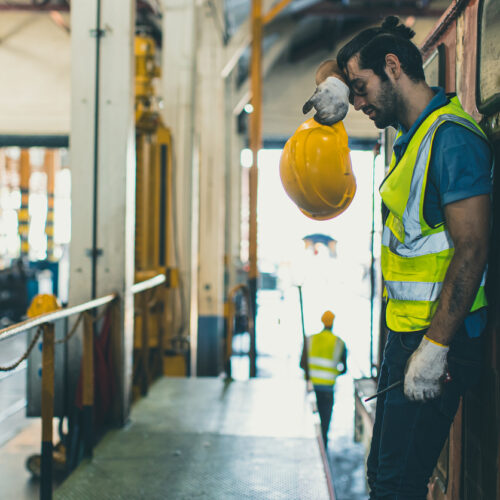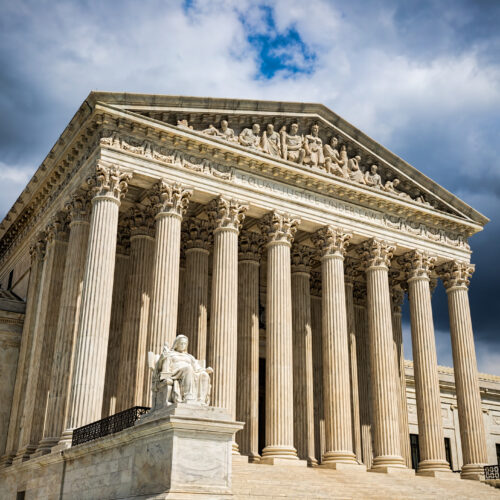Labor and Employment Alert | 401K Lawsuits: The Spread of Excessive Fee Class Actions

July 25, 2023
This article discusses the rash of lawsuits being filed against 401k plans, which has generated the following types of headlines:
The Dramatic Rise in Excessive 401k Fee Litigation – And Who’s Fighting It
Is Your 401k Plan at Risk of a Lawsuit
Surge in Excessive Fee Litigation is Impacting Fiduciary Liability Insurance
Maybe You Should Sue Your 401k Sponsor
Sharp Rise in 401(k) Lawsuits Now Threatens Small Businesses
How did a voluntarily adopted, employee friendly benefit turn into such a potential legal morass is a fair question to ask. A better one is, what can be done about it.
* * *
Employers nationwide sponsor approximately 600,000 401k plans, according one recent report. The plans can be excellent retirement savings vehicles for millions of employees without subjecting companies to surprise costs, and permit employers to reward performers on a tax-deferred basis.
401k plans, like many things in life, require time and attention and care from those in charge. Employee compensation is entrusted to the plan for prudent caretaking, to be paid out later in the employee’s career after accruing investment earnings and paying some portion of reasonable plan expenses. Plan participants are to be educated about their benefit rights, given the opportunity to choose among reasonably selected investment options, assessed reasonable expenses, and paid out their benefits when due. Plan fiduciaries are charged with running the plan solely in the interest of participants and beneficiaries and for the exclusive purpose of providing benefits and paying plan expenses. That’s the law, though in practice, some management may not strictly adhere to the full array of requirements found in ERISA (i.e., the federal benefits law) and the tax code.
Beginning about 15 years ago, suits against the largest of 401k plans were launched by one law firm. These suits claimed that the plan fiduciaries had not reasonably selected investment options for plan participants and that the costs being taxed against their accounts were unreasonably high. The suits were launched as class actions, on behalf of every single person who had any money in the plan during the prior six years. The law was not fully developed, and not many law firms were prepared to risk spending time and resources with such uncertainty about results.
That has now changed. That one law firm was so successful, often achieving settlements with millions of dollars of attorneys fees being paid by the companies because ERISA provides for fee shifting, that many other firms have adopted its lawsuit template and tactics. From 2019 to mid-2022, according to one count, over 200 class action lawsuits were brought against 401k plans, their fiduciaries, and their sponsors. During that same period, companies spent over $150M to settle such suits.
Most of these suits and settlements occurred before the U.S. Supreme Court, in a watershed moment, rejected the attempt of one plan sponsor to have a trial court dismiss such a suit at its earliest stages. In Hughes v. Northwestern University, 142 S. Ct. 737 (2022), the lawsuit had claimed that the plan fiduciaries (1) had failed to monitor and control the plan’s recordkeeping fees, resulting in unreasonably high costs to plan participants; (2) had failed to offer cheaper classes of the same mutual funds; and (3) had offered too many investment options —over 400 in total for much of the relevant period—and thereby caused participant confusion and poor investment decisions. After the trial court dismissed the suit (before intensive discovery had begun) on the grounds that there were enough good investment and fee options for participants to select among, and that dismissal was upheld on appeal, the Supreme Court intervened and ruled that a court had to assess whether each investment choice and each potential fee was prudent, not whether the gestalt of choices seemed reasonable. On remand, the lower court agreed and held that, with respect to the recordkeeper fees and share class allegations, the lawsuit could proceed. Hughes v. Northwestern University, 63 F.4th 615 (7th Cir. 2023).
The upshot of the Hughes decision, at least for the time being, is that trial courts will be less likely to dismiss 401k fee suits at the early stages. And the upshot of that is that companies will be under greater pressure to settle these suits rather than engaging in extensive – and expensive – discovery.
ERISA is largely about process: do fiduciaries understand their role and obligations (What is prudence? What are the fees being charged to participants? What is financial diversification?, etc.) and, when making decisions, did they obtain professional advice, consider a range of options, follow the plan document and investment policy statement, make rational decisions, and document both the process and the ultimate decision. If the documents reflect a prudent process by knowledgeable fiduciaries, employers can be prepared to defend themselves. On the other hand, fiduciaries who blindly rely on third parties to make decisions and do not document their process, put companies at severe liability risk when that 401k excessive fee lawsuit comes knocking.
For questions regarding this alert, or with any other labor and employment issue, please contact:
Jay Sabin, Member, Labor and Employment Practice, at jsabin@bracheichler.com or 917-596-8987
About Brach Eichler LLC
Brach Eichler LLC, is a full-service law firm based in Roseland, NJ. With over 80 attorneys, the firm is focused in the following practice areas: Healthcare Law; Real Estate; Litigation; Trusts and Estates; Business Transactions & Financial Services; Personal Injury; Criminal Defense and Government Investigations; Labor and Employment; Environmental and Land Use; Family Law; Patent, Intellectual Property & Information Technology; Real Estate Tax Appeals; Tax; and Cannabis Law. Brach Eichler attorneys have been recognized by clients and peers alike in The Best Lawyers in America©, Chambers USA, and New Jersey Super Lawyers. For more information, visit www.bracheichler.com.
This alert is intended for informational and discussion purposes only. The information contained in this alert is not intended to provide, and does not constitute legal advice or establish the attorney/client relationship by way of any information contained herein. Brach Eichler LLC does not guarantee the accuracy, completeness, usefulness or adequacy of any information contained herein. Readers are advised to consult with a qualified attorney concerning the specifics of a particular situation.













